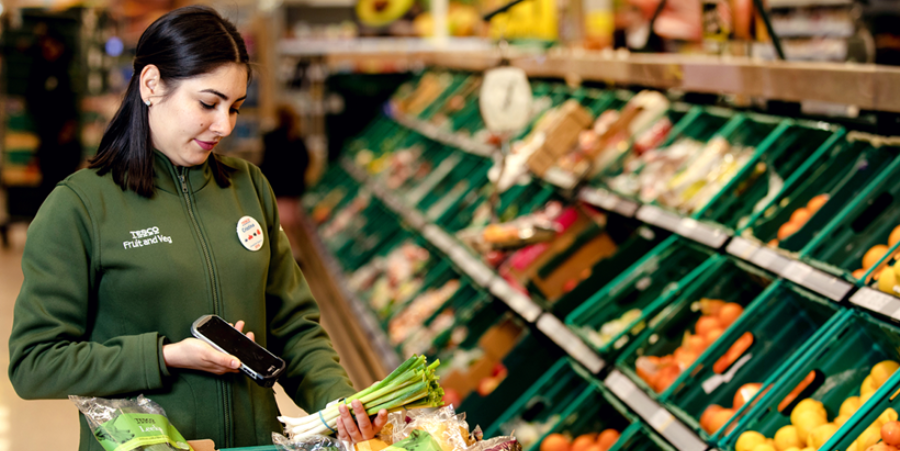Tesco has introduced an online marketplace that matches suppliers with excess product to other suppliers who can make use of it. More than 3,500 Tesco suppliers are expected to cut production costs and reduce waste by selling or donating surplus stock.
This is the latest in an ongoing programme led by Tesco to help its suppliers tackle waste. By working directly with 107 of its global suppliers, it has helped to collectively reduce food loss and waste by 78,000 tonnes. It aims to halve food waste in its operations by 2025 and reach net zero across its entire value chain by 2050.
In the same way that consumer marketplaces work, suppliers can advertise surplus stock for sale on Tesco Exchange, post requests for things they need and agree sales between each other. They can also set alerts for when items they need are posted.
One of the first listings was made by food manufacturer, G’s Group, which supplies pickled beetroot to Tesco. The manufacturing process leaves them with tonnes of beetroot peelings that could be used by a livestock farm as cattle feed.
The opportunity for the Tesco Exchange platform has been highlighted by Tesco and WWF’s recent report about on-farm food loss. The report found that in the UK alone, more than three million tonnes of food waste perish before making it off the farm.
A circular economy
Sarah Bradbury, Tesco quality director, said: “Excess stock or waste for one supplier could be a valuable commodity to another. By linking different farmers, producers and manufacturers together, our suppliers can find new ways to trim their bills, reduce waste, and keep delivering great value for our customers.”
Dr Julian Parfitt, technical director at Anthesis, the sustainability activator and developer of Tesco Exchange, commented: “Tesco Exchange is a great example of an initiative that the food industry needs to embrace and support in order to directly address commitments on food waste, the circular economy, and move towards more sustainable and resilient supply chains.”









